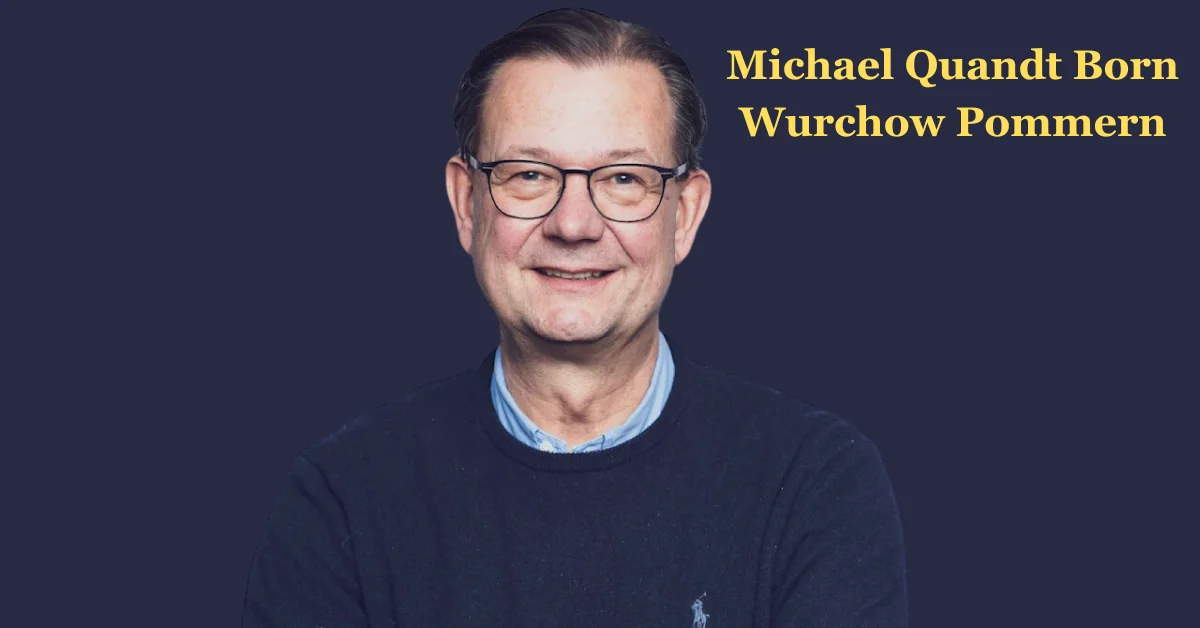Michael Quandt Born Wurchow Pommern: A Life Rooted in Pomeranian History
Michael Quandt, born in 1776 and passing in 1808, remains a fascinating yet little-known figure in the historical landscape of Prussia’s Pommern region, an area that is now part of modern Poland. His story offers a glimpse into life in a rural, agrarian society under Prussian rule, providing valuable insights into the social, economic, and political elements that shaped daily life in late-18th-century Europe.
Michael Quandt Early Life in Wurchow, Pommern
Michael Quandt was born in 1776 in Wurchow, a small town located in the Pommern region of Prussia, now part of modern-day Poland. At that time, Pommern (Pomerania) was a crucial area for Prussia, located along the Baltic Sea, with a population heavily influenced by Germanic and Slavic cultures. Wurchow itself was a rural village, characterized by its agricultural landscape and deeply rooted in the traditions of farming and trade. The late 18th century was a period of significant political change in Europe, particularly in the territories that made up the Prussian state. Michael Quandt was born into a world that was affected by the growing influence of Enlightenment ideals, social reforms, and the economic demands of the time. His family, like many in Pommern, likely lived a humble life, focused on agricultural work and community participation. Understanding his early years is essential to understanding his place in history.
The Economic and Social Setting in the Late 1700s
Michael Quandt’s lifetime witnessed significant economic and social shifts, both locally in Pommern and across Europe. In Wurchow, the agricultural sector was paramount, with farms typically passed down within families.
Farming and Trade in Pommern
The region’s economy depended heavily on agriculture, with key crops such as wheat, barley, and rye. Families like the Quandts would have been engaged in farming activities and local trade, contributing to the community’s sustainability. The self-sustained nature of such communities fostered resilience, which was essential in times of political unrest.
Social Norms and Community Life
Community life in Wurchow involved seasonal gatherings and religious events, where people would meet, trade, and reinforce community bonds. Churches played a significant role, acting as centers for not only spiritual guidance but also education and social gatherings. Michael Quandt likely grew up in this communal, faith-based atmosphere.
Challenges of Rural Life: Understanding Quandt’s Community
Living in rural Pommern during the late 18th century meant enduring many hardships, from harsh winters to political instability. Farming was the backbone of the economy, and the majority of the population worked the land, either as owners or laborers. Families like Michael Quandt’s likely relied on subsistence farming, meaning they grew enough to feed themselves with little surplus for trade. Social life in Wurchow and other nearby villages revolved around the church, local governance, and community activities. The Lutheran church, which had a strong presence in Pommern, likely played an essential role in Quandt’s life. Churches were not only places of worship but also served as hubs for education, social gatherings, and community support.
Read Previous: Casey lenzora father
The Death of Michael Quandt in 1808: A Time of Uncertainty
Michael Quandt’s life came to an early end in 1808, a time of great uncertainty in Europe. The Napoleonic Wars (1803–1815) were raging across the continent, and Prussia had suffered devastating defeats at the hands of Napoleon’s forces. In 1806, Prussia was defeated at the Battle of Jena-Auerstedt, leading to the occupation of Prussian territories by French forces. Pommern was deeply affected by these events, with villages and towns facing occupation, conscription, and the economic strain of war. Although there is no direct evidence that Michael Quandt was involved in the Napoleonic Wars, his death in 1808 occurred during a period of intense military conflict and social upheaval. The local economy would have been strained by the demands of supporting armies, and many young men were conscripted to fight in Napoleon’s wars. Even those who remained in rural areas faced hardship due to food shortages, disrupted trade routes, and the collapse of local markets.
The Importance of Genealogy and Family History
Exploring the life of Michael Quandt also highlights the importance of genealogy and family history research. For many people in the USA, tracing ancestors back to regions like Pommern can offer a sense of connection to their heritage and a better understanding of the historical forces that shaped their family’s journey across the Atlantic. With modern tools such as online databases and DNA testing, it is easier than ever to trace family roots back to small villages like Wurchow.
Legacy and Historical Significance
Michael Quandt’s life encapsulates the experiences of rural Prussian citizens during a time of intense transformation. Though he did not witness the full reforms that Prussia would later undergo, his life represents the traditions and values that were the foundation for these changes. Through the historical lens, his journey embodies the resilience of the Pommern people and their adaptability to political shifts, family commitments, and societal expectations.
FAQs
Who is Michael Quandt, and where was he born?
Michael Quandt is an individual believed to have origins in Wurchow, a town historically located in the region of Pommern (Pomerania). This area is part of present-day Poland, previously under German influence. His birth in Wurchow suggests German-Polish heritage, though historical records provide limited details.
What is the historical significance of Wurchow in Pommern?
Wurchow, situated in the historical region of Pomerania, was influenced by German and Polish rule over centuries. This area saw significant demographic shifts, particularly after World War II, when territories were redrawn. Individuals from this region, like Michael Quandt, often experienced cultural blending due to these changes.
What is known about Michael Quandt’s family background?
Limited historical documentation exists about Michael Quandt’s family. However, the Quandt name has German roots, commonly found among German-speaking populations. The family may have been involved in traditional trades or farming, typical of the Pomeranian lifestyle at the time.
Is Michael Quandt connected to the prominent Quandt family?
Though “Quandt” is a notable surname associated with a wealthy German family involved in industry (such as BMW), there is no confirmed connection between Michael Quandt from Wurchow and the prominent Quandt lineage. The surname could be coincidental or indicate regional ties without direct familial relations.
Conclusion
Michael Quandt roots in Wurchow, Pommern, offer a glimpse into the complex cultural and historical landscape of Pomerania, a region that saw shifts in sovereignty and demographic changes over centuries. Although details about Michael’s life and family are limited, the Quandt surname is steeped in German heritage, and his background hints at the rich cultural fabric typical of Pomeranian ancestry.
Stay Informed With: Webtoonxyz.blog!






